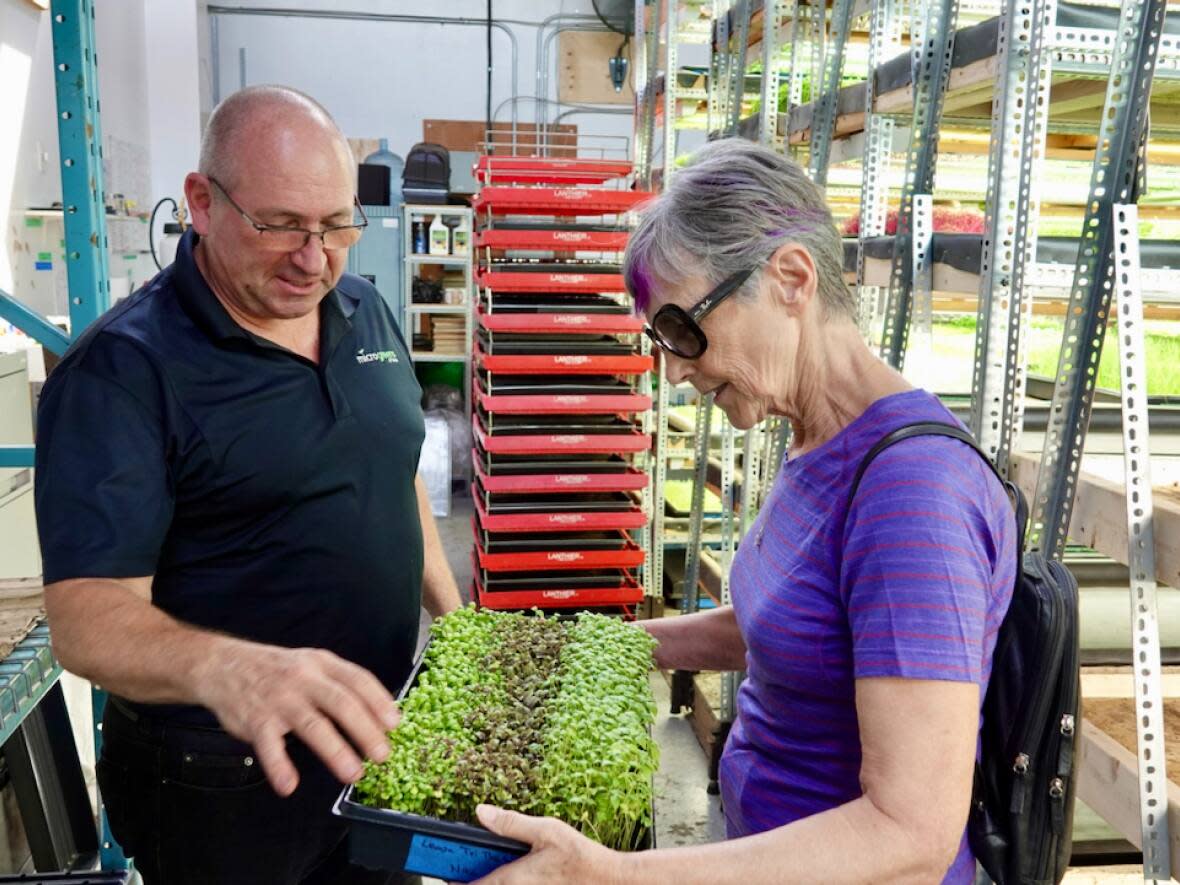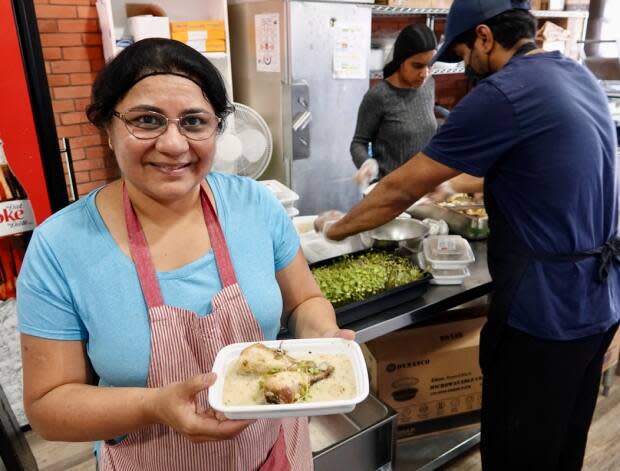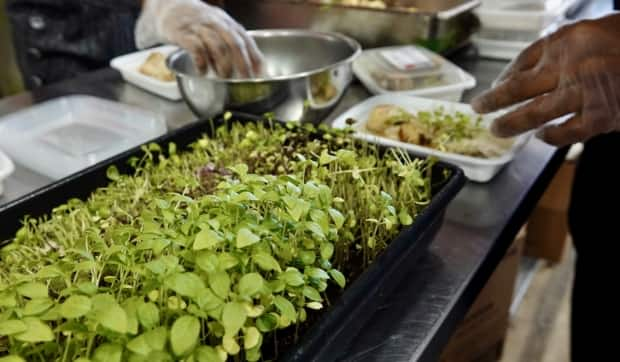Charity diverting more food from landfills onto plates as demand grows

An Ottawa not-for-profit that collects surplus food and delivers it to charities has tripled in size during the pandemic, says the chair of its board.
"Right now with the rising food prices and the increase in the amount of people reaching out to the services in our community, charities are desperate for food," said Brandie Lekovic, chair of the board of directors at Foodsharing Ottawa.
Lekovic said her group's volunteers redistribute a monthly average of 1,500 kilograms (or 3,500 pounds) of mostly fresh food that would otherwise be destined for the landfill or compost bin.
Jace Baart, owner of Microgreens Ottawa, first got wind of the program thanks to a client who proposed it as an alternative to tossing his unsold produce, which he grows in an urban indoor vertical farm near Bank Street and Heron Road.
"We were literally throwing it out every week," said Baart. "We really hate to waste anything and Foodsharing Ottawa just means we're wasting as little as possible."

Twice a week a volunteer arrives at Microgreens to collect the surplus produce, which also helps Baart since his company, like most in Ottawa, must hire a contractor to handle its waste, recycling and composting.
But Baart said his motivation goes beyond the bottom line.
"These are products that we've spent time growing and to see it being used by someone else, it just makes me feel good," he said.
'It's a circle'
On this particular day in mid-August, Baart has handed over trays of try basil and red basil to Monnina Running, a volunteer driver with Foodsharing Ottawa.
"I do this because it keeps food out of the landfills and gets it where it belongs, which is in people's stomach," said Running.
From Microgreens, Running is off to the Food for Thought kitchen on Industrial Avenue, one of 30 local agencies and charities Foodsharing Ottawa delivers food to.

Once in the skilled culinary hands of Food for Thought's director of operations Anupama Potdar, the basil is washed, chopped, then added to hundreds of individual takeaway servings of chicken stew.
The team at Food for Thought prepares 1,400 meals a day, free to anyone in the community who needs them.
"We believe in sharing," said Potdar. "They're sharing what they can with us, we're sharing what we can with our clients, so it's a circle. You keep sharing and more keeps coming to you."

More mouths to feed than donors
Foodsharing Ottawa's roots date back to 2015 when a group of volunteers decided to launch a food redistribution program in the nation's capital.
In 2019, the program became a not-for-profit with a board of directors and has since expanded threefold, during both the pandemic and the rise in food prices.
While word of Foodsharing Ottawa has been spreading among restaurant owners and grocers, the rise in demand for fresh food has easily outpaced supply, said chair Lekovic.
More than a dozen businesses consistently donate surplus food and she said the push is on to recruit more suppliers, which often involves reassuring business owners.
WATCH | Organization see demand rise during COVID-19 pandemic:
"When we approach a possible donor they're nervous about donating their food," said Lekovic.
"They're feeling anxious about liability, asking 'What if I donate something to you, you pass it on, and somebody gets sick because it's already past its best before date?'"
Fortunately for everyone involved, Ontario has a Donation of Food Act and a Good Samaritan Act which protect those who are willing to donate fresh food and leftovers.
Even so, said Lekovic, Foodsharing Ottawa volunteers are trained in food safety and would never accept food that is spoiled.
The food they do collect, she adds, is often simply past its best before date and is no longer at a high enough standard for most grocery store shelves or for serving at most restaurants.
"It's perfectly good," she said. "This is maybe food that looks a bit different."


